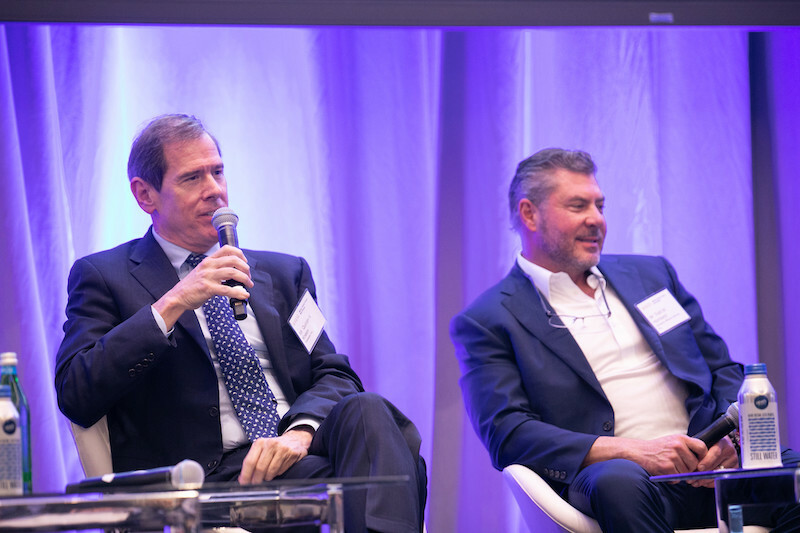While the maritime industry gears up to find a niche in the emerging offshore wind industry, several offshore service vessel players in the energy sector say they aren’t ready to take the plunge into this market any time soon.
The reason: the profits just aren’t there.
“This is an opportunity, but it’s just in the infancy level,” J. Peter Laborde, Jr., managing member of Laborde Marine Management, told a Marine Finance Forum organized by Marine Money in New Orleans on Nov. 30.
“Everything we started, the numbers aren’t working properly. This is a real deterrent for us, because we can’t afford to make a mistake,” he said.
Laborde said his company, which operates a fleet of offshore support vessels, would like to see a 25% return on investment, but they’re seeing a lot lower, “and that will be difficult to attract capital.”
Quintin Kneen, president and CEO of Tidewater, one of the largest operators of OSVs in the global energy industry, concurred. He said his company will be “glad to play when the economics are there.”
Todd Hornbeck, chairman, president and CEO of Hornbeck Offshore Services, said “our whole fleet can go into offshore wind. We can convert, but the wind market has to show the ability to pay. If we can’t make a profit, we’re not interested.” He suggested that the liability of contracts must be shared more as the “supply chain operations continue to endorse all the risk. It must be shared.”
Offshore wind projects and operations will rely on at least 26 vessels per project, according to American Clean Power, a group of renewable energy companies advocating clean energy. These boats would be involved in all stages — survey work, transfer of materials, cable installation, crew transfer and turbine installation. One source for these vessels are those now involved in similar work in the Gulf of Mexico energy sector, which can be converted for use in the offshore wind market.
Aaron Smith, president of the Offshore Marine Service Association, told WorkBoat that generally his members want to be involved in offshore wind as a new business opportunity.
He said OSV companies have the equipment that can be used in wind development, but find it hard to compete with foreign vessels that can operate at a lower price point. “They can’t compete,” he said, “when foreign vessels are legally allowed to employ people that we’re not legally allowed to employ.”
Under the Jones Act, U.S. vessels that move cargo between points in U.S. waters must be crewed by U.S. mariners. Foreign-flag vessels and crews are being employed by wind developers for what they describe as specialized needs — but OMSA and other U.S. maritime advocates are pushing Congress to apply the Jones Act and other regulations more strictly to the new offshore wind industry.
“It would be difficult for companies to invest in new vessels and compete with vessels that play by other rules,” he said.





